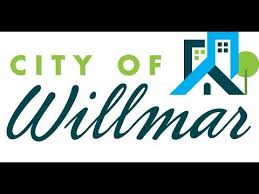City of Willmar to Consider Implementing Gas Franchise Fee
The City of Willmar is evaluating the potential introduction of a gas franchise fee, aimed at generating additional revenue for infrastructure projects. This move could impact residents and businesses, as it would be an additional charge on gas utility bills.
City officials believe the fee could provide a steady funding source for necessary improvements, such as road repairs and public works projects. The proposal is currently under review, with discussions ongoing to assess its implications and benefits.
The franchise fee concept is not new; many municipalities across the country utilize similar fees to support local infrastructure without raising property taxes. However, such fees can be controversial, as they add to the overall cost of living for residents and operational costs for businesses.
Supporters argue that the fee is a fair way to distribute the financial burden of infrastructure improvements, ensuring that all gas users contribute. Critics, on the other hand, worry about the economic impact, particularly on low-income households and small businesses.
The proposal will be discussed further in upcoming city council meetings. If approved, the fee would be implemented by adding a percentage of the gas bill or a flat rate, depending on the final decision.
For more information on how franchise fees work and their impact on local communities, visit National League of Cities.
Original Story at news.google.com
